A Beiruti Levantine interrogates her country's perennial condition with its neighbor in the aftermath of Hamas' strike on October 7 and the bloodcurdling aftershocks that have brought endless death — and, remarkably, resurrection, as a much younger Arab generation awakens to a commitment and passion for the cause.
Is it a struggle to the death, now?
Because what do you call ethnic cleansing and genocide, insidiously suffered over decades in ebbs and flows, then at once crazed and boastful? Like the past 365 days in Palestine.
And the wars that burn and kill on the supposed peripheries of Israel in the wider Levant, by the hour without rules and bounds. Red lines drawn on quicksand, journalists in full press gear targeted for assassination, phosphorous scorching earth, innocents sniped and exploded as messages soaked in blood, pagers and other devices detonating as people walk and work and shop. As we reel from this never ending bloodshed and its diabolical playbooks, we turn our gaze to this Israeli enemy in search of answers to another question that nags: Is this our perennial condition with this neighbor?
I wonder and write as a Beiruti Levantine. I say Levantine with extreme ease suddenly. I do so less as a statement of identity than a practical adjustment to the region’s emerging materialities. Inevitably, they have become the backdrop to life.
In this once Fertile Crescent, there is, it seems irreversibly, a temperament of non-statehood that envelopes us, as both societies and countries. We float unmoored and adrift in Syria and Iraq, in Palestine and Lebanon, even in Jordan which remains intact. We live uncertain of who and what we are and shall become in a terribly frayed and threadbare universe. There is still a kind of nominal shape to it, it is true: the borders are more or less there, at least on the map; the ministries and armies; the courts; the passports too. But this world that we once understood implicitly, notwithstanding its absurdities, we tread gingerly now.
All that survives are formalities. They do offer the comfort of the familiar but, in the end, they deceive. To be Lebanese, or Syrian, or Iraqi, or Jordanian, is akin to having just a name. They are the labels we carry but they define only the most superficial part of us. We mesh and sunder in ways that may be reminiscent of our grandparents’ experience when our modern presence as nation-states commenced at the order of foreign others.
Theirs was the confusion of the haphazard separations and mergers of Sykes–Picot and Sam Remo — the 1916 agreement penned by British and French faux statesmen and the 1920 conference that set us on our modern predicaments. Ours is the disorientation of living in withering dominions that never truly set deep roots and offered us the confidence of being whole and coherent.
Yet, for all the ills that continue to emanate from such imperial intrusions, somehow we remain sure of our rootedness, of the connections between us, while the Palestinians, a people unto themselves in the Levant, brave mass slaughter and transfer. Remarkably, we do so across generations, as much younger ones awaken to a commitment and passion for the cause we thought we had lost to a fading history.
It is peculiar, this deepening sense of bonding that transcends peoples, geographies, and generations, even as we fragment and spar between ourselves. I live and know so well this condition even as I strain to explain it, even as it imposes questions we never wanted to ask ourselves; even as it presents situations that are unnervingly at odds with the life we hoped we could someday live: a semblance of quietude in a peaceful neighborhood in the shade of well-functioning states. Reasonable aspirations elsewhere; alas, unrealistic ones for us on these Levantine landscapes.
But such is the new moment birthed by October 7. It took only a weekend for Hamas’ assault inside southern Israel to gather disquieting descriptors. On Saturday, we woke to a dauntless raid, by Monday we sensed a cataclysm, a turning point.
They reign over October 7 like queens now, these descriptors. In their realm lie shattered the perceptions about Israel’s supremacy and Palestine’s futility which we had long held; the assumptions we put to work every time our eyes turned inward and outward, East and West, to the US and Europe, the EU and UN; the yardsticks we were trained to use when invoking terrorism and resistance, democracies and autocracies, international law, universal human rights, journalistic integrity, academic liberty, freedom of speech, of thought, of assembly.
I simplify for convenience, of course, because Hamas’ terrifying attack and Israel’s consequent genocide in Gaza may be exceptional in contemporary history, but they are not unique. Our suppositions about the international order’s rules of conduct always came with question marks and caveats. We knew that these rules are no more than guidelines for an unbearably imperfect humanity whose very bad habit is to sacrifice justice to prejudice and narrow interest.
That is to say, most of us, whether new to the matter of Palestine or old, rose on October 7, 2023, neither Panglossian in our expectations nor childlike in our hopes. And still, the extraordinary force of the strike and its bloodcurdling aftershocks have brought about in us a kind of death — and, remarkably, resurrection.
For everyone, everywhere, on whichever side of the fence we stand in the war over Palestine, October 7 is at once doom and promise, a realm of infinite space simultaneously accommodating intoxicating possibilities and ever evolving catastrophic consequences. We find ourselves frantically traveling between extremes that provoke nightmares and tickle our dreams. Propositions that only two years ago we deemed preposterous have suddenly become plausible enough to be real. The liquidation of the Palestinians on one end and the collapse of Israel as a Jewish state on the other now frame our hopes and fears. Every scenario we entertain falls somewhere in between. To affix these on the page, therefore, is to miss the point.
Till this very day, the epic events of the past year continue to dethrone delusions and rebuke misconceptions, break the heart every hour of the day only to stem its grief through acts of astounding empathy and generosity, courage and humility. But understandably, we humans have the urge to pin down history as it unfolds. So, we look for markers of how the world has radically changed for all of us. In this way, the fractures triggered by October 7 have become the cracks through which we peek into outcomes.
These breaches are indeed many. Breaches in The Iron Wall built to impregnate fortress Israel, disappear the oppressed Palestinians, and sustain mythologies of invincibility. Breaches in the Palestinians’ mortal fear that their destiny is that of a footnote. Breaches within the American Jewish community and between its younger and older members on the very meaning of Israel and being Jewish. Breaches between Western publics and governments about their complicity in Israel’s savagery, between Arab regimes and their peoples about Palestine’s place in one’s sense of self, between the international courts and the world powers that created them.
It feels endless. But truthfully, the ruptures are a mystery still. They scream change but at this hour we don’t know which will last and perceptibly alter the order of things for us — for the Israelis and Palestinians. Because of all of October 7’s fledgling legacies fighting to carve a presence in the future, that which proposes to swathe these two people is the one that matters the most. When it conclusively comes into its own, it will have answered some profound questions.
Can a genocidal, ethnic cleansing state thrive in the gruesome penumbra of its atrocities? Can an apartheid regime endure in the full glare of its entrenched racisms? Can self-described democracies that are branded as both? Might unrestrained Israeli bloodlust and vengeance in the name of self-defense yield a tangible comeuppance? Will we ever see the true limits of US permission, international timidity, and Arab acquiescence? Can an occupied people murdered, decimated, and terrorized en masse recover, continue to resist, and finally achieve liberation?
History says it all depends, and so, it is no guide. The specific history of the struggle over Palestine is even more reticent. As kind as it has seemed to Israel and cruel to the Palestinians, had it categorically swayed for either, they wouldn’t be still vying for its verdict.
Appearances do deceive. Perhaps that was the ugliest awakening for Israelis on October 7, and likewise the surprising opening for Palestinians. For all the blight and tarnish accumulating from the 1967 Israeli occupation that morphed into a brutal continuum of an unwilling people’s colonization, Israel seemed to soar as if exempt from blowback. All the forebodings sounded across the decades by many of the country’s mavens about the voracious appetite of nationalist Zionism and the messianism it has inculcated in its followers are today the facts that populate the Jewish state between the Jordan River and the Mediterranean Sea. And they are hideous.
Similarly, even the most obstinately optimistic amongst us were truly hard pressed to foresee deliverance for the Palestinians, a people who seemed forever consigned to live a life of sacrifice because of who and where they are. We kept asking: Wherefore the grounds for such sanguinity, when the Palestinians have had the ill-fortune of resisting an Israeli occupier with exceptional license drawing on a long history of extraordinary suffering and a present of baffling influence?
Then the earth shook on October 7 and it hasn’t stopped since. It feels as if we all had been standing on such fragile rationales believing them steel-clad. Yet the question that opens this essay may well conclude it unanswered: Is this a struggle to the death, now?
Every existential dilemma may be entitled to a satisfactory answer, but it won’t necessarily have it, especially the Question of Israel-Palestine.



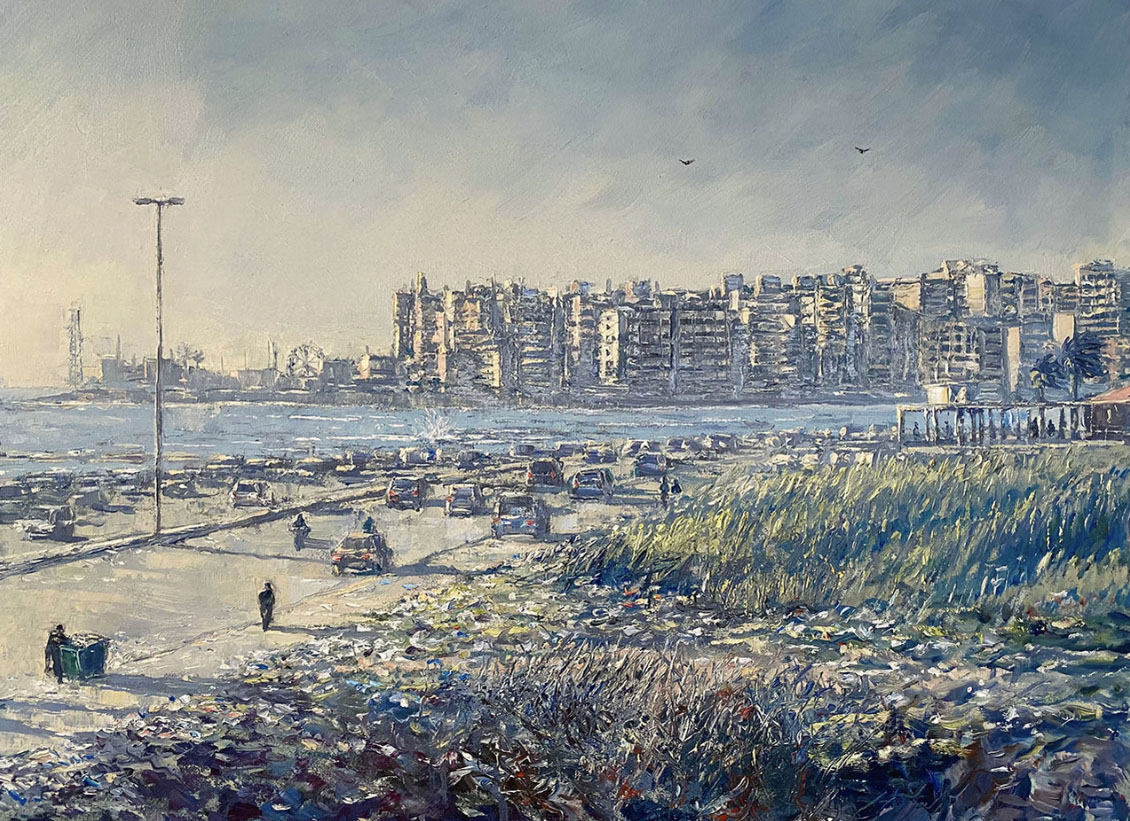
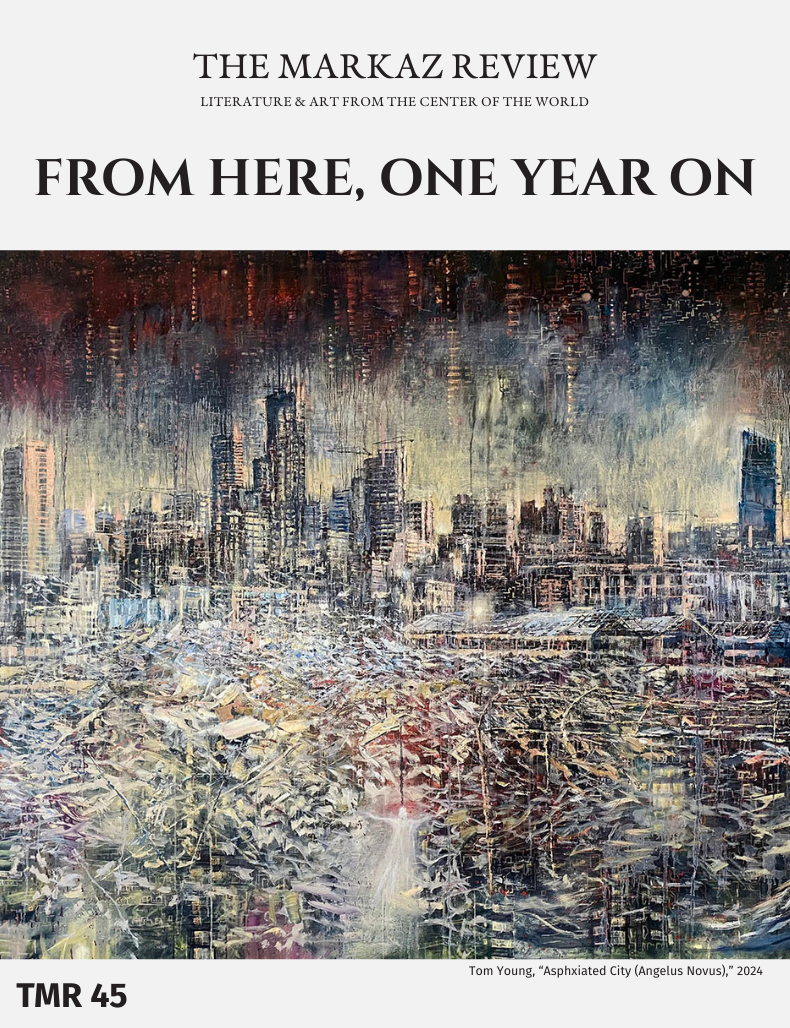

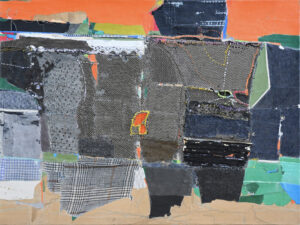
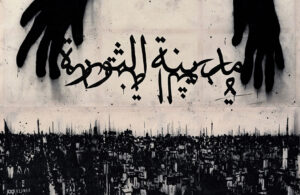




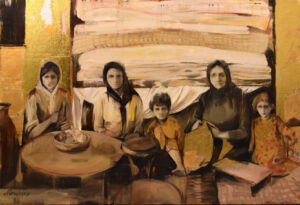


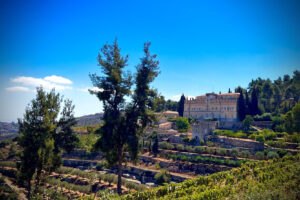


















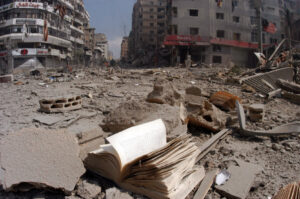










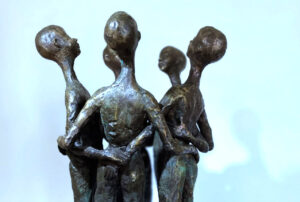











![Ali Cherri’s show at Marseille’s [mac] Is Watching You](https://themarkaz.org/wp-content/uploads/2025/09/Ali-Cherri-22Les-Veilleurs22-at-the-mac-Musee-dart-contemporain-de-Marseille-photo-Gregoire-Edouard-Ville-de-Marseille-300x200.jpg)












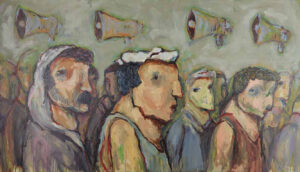



















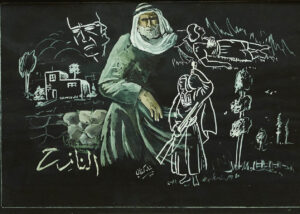


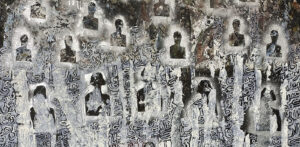





































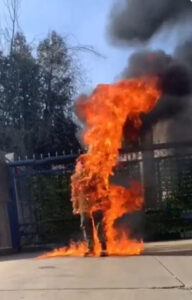













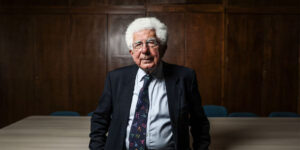


























![Fady Joudah’s <em>[…]</em> Dares Us to Listen to Palestinian Words—and Silences](https://themarkaz.org/wp-content/uploads/2024/03/SAMAH-SHIHADI-DAIR-AL-QASSI-charcoal-on-paper-100x60-cm-2023-courtesy-Tabari-Artspace-300x180.jpg)














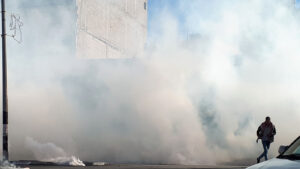





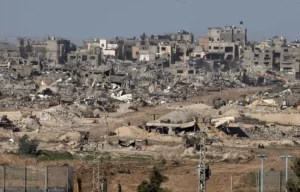






























































































































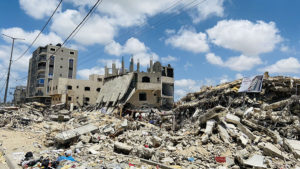





















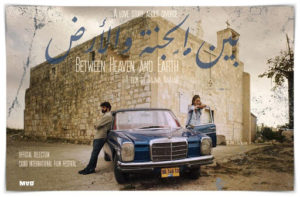







Luminously and persuasively penned by Ms. Amal Ghandour! Many thoughts of appreciation and solidarity. Very early on, I would only have recommended that she include the word (my word, used more frequently and urgently by the day) that will be found here. “…what do you call ethnic cleansing and genocide, insidiously suffered over decades in ebbs and flows, then at once crazed and boastful…and *vindictive*?” Such is what I viscerally detest and condemn about the satanic militant/political ideology Colonial Zionism … ultimate VINDICTIVENESS.
Pingback: We’ve Been Here Before - Amal Ghandour